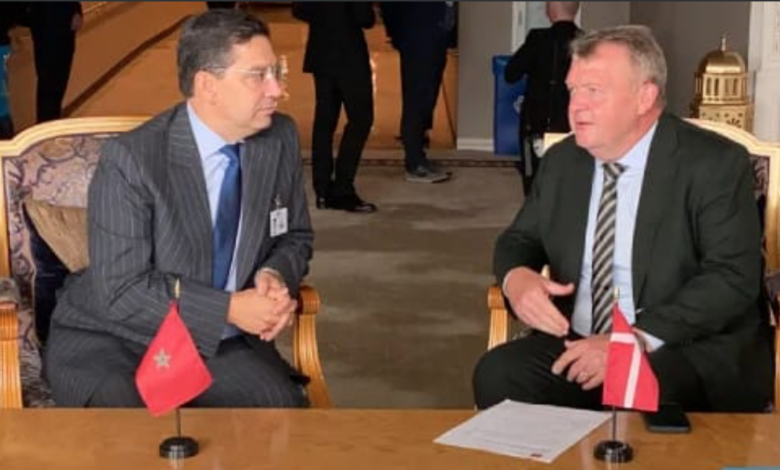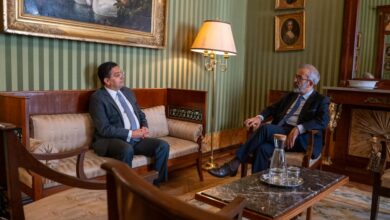Denmark’s Recognition of Morocco’s Sovereignty over the Sahara: Strategic Changes in Northern Europe’s and the World’s Positions

ALDAR/
In the context of Morocco’s ongoing diplomatic efforts to resolve the Sahara dispute, the meeting held between Moroccan Foreign Minister Nasser Bourita and his Danish counterpart Lars Løkke Rasmussen on the sidelines of the 79th session of the United Nations General Assembly represents a significant step that reflects changing positions among Northern European countries regarding the Sahara issue.
In the joint statement issued after the meeting, Denmark expressed its view that the autonomy plan presented by Morocco in 2007 is a “serious and credible contribution” to the UN-led process. This statement is not merely a formal endorsement; it indicates a strategic shift in the positions of Northern European countries and the international community toward the dispute. The autonomy plan is seen as a solid foundation for reaching an agreed-upon solution among all parties under Moroccan sovereignty.
This Danish step comes amid increasing international momentum supporting Morocco’s stance, backed by the vision of His Majesty King Mohammed VI. This vision calls for a political solution that respects Moroccan sovereignty and ensures stability in the region. In recent years, there have been notable changes in international positions regarding the issue, as many European countries have begun to recognize the geopolitical dimensions of the dispute and its impact on regional security.
Denmark’s support for Morocco’s autonomy plan is likely to strengthen Morocco’s position on the international stage and positively affect its relations with other European countries. These evolving stances are expected to pave the way for greater cooperation in economic and political fields, particularly within the framework of strategic partnerships with the European Union.
The positions of Denmark, along with other Northern and Southern European countries and nations around the world, are indicators of a shift in the international understanding of the Sahara issue. Solutions that consider practical realities, such as the autonomy plan, are increasingly viewed as effective ways to enhance peace and stability. This shift in the European stance reflects the growing importance given to solutions that respect national sovereignty and cultural and historical specificities.
Moreover, this evolving diplomatic landscape may encourage further dialogue and negotiations between Morocco and other stakeholders in the region. As global dynamics shift, the recognition of Morocco’s sovereignty over the Sahara by Denmark could inspire other nations to adopt similar positions, potentially leading to a more unified international approach to resolving the dispute.
In conclusion, Denmark’s acknowledgment is not just a diplomatic gesture; it signals a broader trend of changing perceptions within Europe and beyond regarding the Sahara conflict. The growing acceptance of Morocco’s autonomy plan as a legitimate pathway towards resolution underscores the importance of respecting territorial integrity while fostering dialogue among all involved parties. This evolving narrative could ultimately contribute to a more stable and prosperous North Africa, with Morocco playing a pivotal role in regional security and development.





